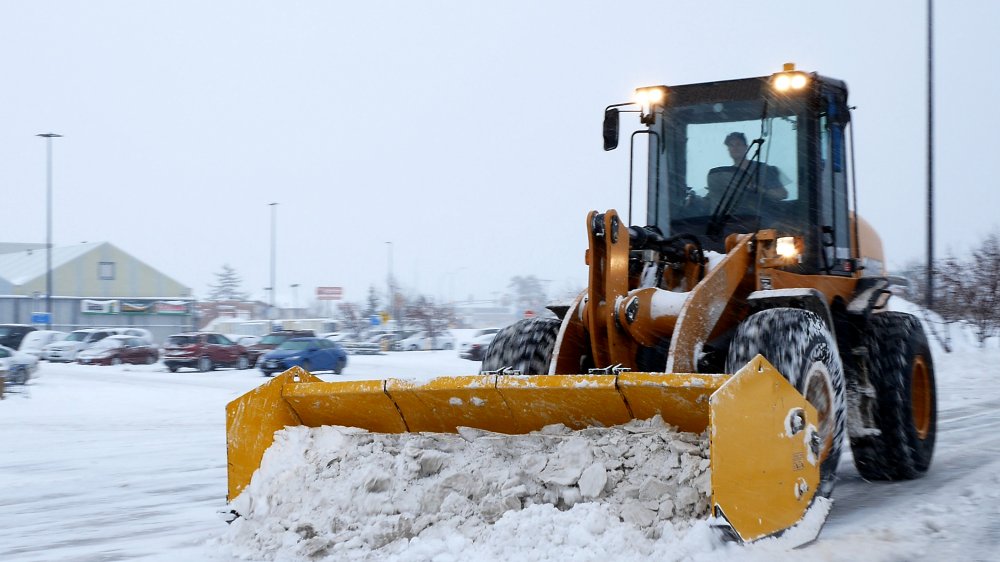How To Tell If You're A Snowplow Parent
Everyone knows about helicopter parents, who obsess over their kids' every move, do their science dioramas for them, and break out in hives over the possibility of the slightest mistake. ("No, that jigsaw puzzle piece is upside down!" they bemoan). This term certainly doesn't describe you, of course ... "I already completed fourth grade — you do that book report yourself!" you've been known to say. But if you're confident that Junior will get a good grade on that report without your help because you camped outside the principal's office over the summer to make sure he was assigned to the "nice" teacher, you may be a type of parent named after another motor-operated vehicle. You may be a snowplow parent, plowing any obstacles out of your child's path.
Like a helicopter parent — and also that "Tiger Mom," who demands academic brilliance or else withdraws affection — a snowplow parent is anxious about their child's success (per Today's Parent). "Parents' feeling like it's their job to make sure their kids do not experience any obstacles and therefore do not experience any unhappiness or negative emotion," psychologist Nicole Beurkens told MindBodyGreen. "It's tangible about parents removing any negative experience, but what we're really dealing with is parents having a hard time seeing their kid experience uncomfortable or unpleasant feelings."
Snowplow parents can make teachers cringe
You may be a snowplow parent if you text or email the teacher every time your child doesn't do well on a test — or if you're often escalating concerns about teachers to principals and superintendents. Prime suspects for snowplow parents tend to be "Room Moms" who staff every book fair, organize class gifts for the teacher's birthday, and chaperone field trips.
Sure, they're saints for offering so much of their valuable time — you don't see many other parents offering to help wipe other kids' noses or staying up until midnight creating a sizzle reel of the best photos from the Halloween parade. But these tireless volunteers' motives may not be entirely altruistic; they may be hanging around the classroom so much so that they can keep an eye on their kids and snowplow away any threats to their academic performance, Beurkens explained. "[T]hat the parent is volunteering at the school, so the parent can jump in at any point. It's under the guise of helping the teacher, but the real motivation is that they want to be there to step in and solve problems," she added.

